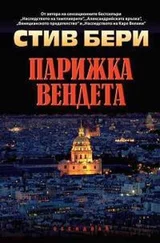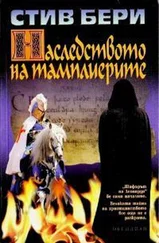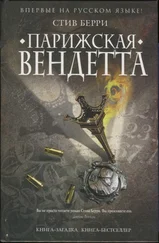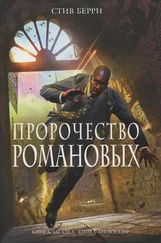Vergara studied them over her shoulder. “What do they say?”
“You don’t speak German?”
He shook his head. “Only Spanish and English. Are you fluent?”
She nodded. “How did you know what these were?”
“I called in an official translator who gave me an overview of what they contained.”
She kept looking.
Four words caught her attention on one page.
Spende der Deutsche Wirtschaft.
Fund of German Business.
Or, as history had dubbed it, Hitler’s Bounty.
Moneys derived from German industrialists—some of whom contributed willingly, while others required encouragement. It was the price paid for the privilege of profiting from the Reich, and it became Hitler’s personal treasure chest, making him the richest man in Europe.
A token of gratitude to the leader.
That’s how she recalled it being explained.
The moneys mainly were paid in the form of a one-half percent tax on a company’s payroll, along with a tariff levied on every ton of steel or barrel of oil produced, all payable directly to the Führer. Historians all agreed that Martin Bormann exclusively controlled those funds—hundreds of millions of marks—which disappeared after the war. And here was incontrovertible evidence of foreign transfers, including account numbers and authorization codes, most approved by the scribbled signature of M. Bormann, that related directly to that fund.
“Is there anything of importance mentioned?” Vergara asked, noticing her interest.
She decided a lie was better than the truth. “Nothing yet, but I want to see it all before I conclude this was a waste of time.”
She spent the next two hours going through the files. There were hundreds of asset transfers, along with deeds to real estate in Paraguay, Uruguay, Brazil, Argentina, and Chile. Patent records, too. Along with pages that dealt with what was called the Cultural Fund, moneys paid by people and entities who used Hitler’s image on things like posters and stamps, which generated many more millions of marks. All transferred from Germany to Chile and Argentina from 1944 onward.
Vergara came in and out of the office, noticing some of what she was doing, but otherwise leaving her alone. She should speak with Cotton.
But not now.
“I’m going to need to box up all these files,” she called out to Vergara.
He stepped into the office, and she decided to share a little.
“They show an enormous amount of wealth coming from Germany to South America. When you find the owner of this apartment, we’re going to need to ask him a lot of questions.”
“I understand. We are actively searching and should have some results shortly. I will say that I have dealt with this type of financial matter before. One of our local institutions, the Banco del Estado, has repeatedly been implicated with war-related transfers. I know of several investigations that were conducted into its past activities.”
That name was familiar.
Some of the records she’d just examined evidenced transfers to that bank in the 1940s. Maybe a visit could be productive.
“I’d like to go there,” she said.
Vergara’s face remained deadpan, and she wondered how much practice it took to control one’s emotions so effortlessly.
“All right, Senorita. I can arrange that.”
CHAPTER TWENTY-THREE
BREMEN, GERMANY
4:30 P.M.
Pohl was amazed. He’d not thought Marie Eisenhuth capable of such a bold political move in calling out his publications and implying he was a Holocaust denier. He’d clearly underestimated her, and he resolved never to make that mistake again.
“Are we ready?” he asked one of his aides.
“We will be by five, as promised.”
“Has the press assembled?”
“They are waiting.”
He adjusted his tie and combed back his wavy hair. Though his blood pressure had always been elevated and his weight fluctuated, baldness was not something he’d ever needed to worry about. He stepped over to a table where an early dinner had been provided by the hotel. Though he’d yet to experience problems with cholesterol, his doctors had recommended a strict vegetarian diet. Unfortunately, he loved the local Westphalian ham, the meat coarse and rich, so he carved off a slice and reached for a chunk of pumpernickel bread.
He sat in a chair by the window and enjoyed the sandwich.
Outside, across the street, the Bürgerpark was green from elms, oaks, and beech trees that clearly recognized warm weather had arrived. The surface of the lake beyond was disturbed only by ducks.
Bremen was truly a lovely part of Germany. A free city. A sovereign state all to itself. The smallest in Germany. A place that traced its roots straight back to Charlemagne.
He so admired political independence.
Small doses were excellent fuel for vast social movements. Large doses, though, could be disastrous. People definitely needed latitude, but they also required discipline. He so wanted German glory restored to that before World War I, when there was no Versailles humiliation, no Weimar Republic, and none of the absurdities from World War II. Back to a point where hopes and dreams were not tainted by stupidity and greed. Hitler had been a political maniac who mangled a good idea and destroyed any chance of it ever succeeding.
Clearly that evil needed to be ignored.
But not forgotten.
Hitler’s name alone, in many, still evoked a deep sense of duty, and obedience should never be underestimated. In fact, it was the one trait of the German people he was absolutely counting on.
He finished the sandwich and stepped back to the food cart. He poured a half glass of schnapps and downed the strong, clear liquid in one swallow.
A knock at the door and another aide indicated that it was time to go.
Good.
He was ready.
They drove in silence to the marktplatz.
His campaign staff was bright and efficient. They’d carefully analyzed the situation and quickly devised an effective response to Eisenhuth’s earlier show at Dachau. Their efforts adhered to a rule learned from American politics.
Never let your opponent speak unilaterally.
That was the fastest way to lose an election.
Public opinion stayed fluid. The days of Joseph Goebbels and the Soviet Politburo, when a few could easily control the thoughts of millions, had faded. The press today was diverse and hungry, fueled by independent corporations and unimaginable sums of money. And the internet added a whole new dimension to the art of propaganda, both good and bad. Manipulation today required a varied approach, combining the skill of a film director with the abilities of an actor, while simultaneously exhibiting the wisdom of a philosophy professor.
A tough assignment. But he was good at it.
And getting better.
The car stopped and he stepped out onto the square.
Bremen’s impressive rathaus, replete with bas-reliefs, rose on one side, the town’s Gothic cathedral on the other. Both would serve as backdrop, like Dachau had for Eisenhuth. Instead of a victims’ memorial for a focal point, his staff had chosen the statue of Roland that graced the marktplatz with a podium standing within its shadow. At its base, facing a throng of reporters, were stacks of books, about two hundred in all.
He paraded from the car straight to the podium, buttoning the coat to his Evan-Picone suit as he walked. He glanced up at the ten-meter-high stone statue. Roland, the nephew of Charlemagne, stood brandishing a sword of justice and a shield upon which he knew was inscribed, FREEDOM DO I GIVE YOU OPENLY.
The symbolism seemed perfect.
“Guten abend,” he said into the microphones, once at the podium. “Earlier in the day my opponent saw fit to openly accuse me of being a Nazi sympathizer, a man who derives profit from the denial of recorded history. She produced copies of books that have, through the years, been published by houses I either own or control.” His gaze focused tightly on the crowd. “I do not deny her charges. How could I? Those books exist. They were placed on the market and sold for profit. That is the way of business. I make no apologies.”
Читать дальше












